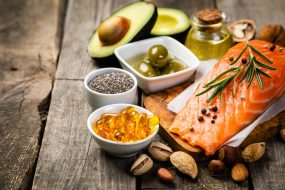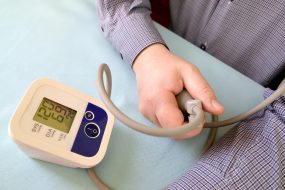
The National Library of Medicine Censors Nutritional Research Medline is Biased, and Taxpayers Pay for It
Did you know that there are “good” medical journals, and that there are “naughty” medical journals?
No kidding. The good journals are easy to access on the internet through a huge electronic database called Medline (https://www.ncbi.nlm.nih.gov/pubmed) This wonderful, free service is brought to you by the US National Library of Medicine and the National Institutes of Health. In other words, by you. By your tax dollars. Generally it is money well spent, until you go searching for megavitamin therapy research papers. Then you will find that you can’t find all of them. That is because of selective indexing.
“© GreenMedInfo LLC. The work below is reproduced and distributed with the permission of GreenMedInfo LLC. Want to learn more from GreenMedInfo? Sign up for the newsletter here www.greenmedinfo.com/greenmed/newsletter.”
The original article link:
https://www.greenmedinfo.com/blog/pizza-prevents-heart-attacks-and-cancer
The National Library of Medicine (NLM) proudly describes itself as “the largest medical library in the world. The goal of the NLM is to collect, organize and make available biomedical literature to advance medical science and improve public health.”
Hmm. Collect. Organize. Make available. Improve public health.
So, after over 40 continuous years of publication, why is the Journal of Orthomolecular Medicine NOT indexed by Medline?
And what are the consequences of such exclusion? In a nutshell, it stops the public from using their computers to learn about all of the scientific research and clinical reports demonstrating the effectiveness of megavitamin (orthomolecular) therapy. It also greatly hampers professionals from seeing pro-vitamin studies. Have you ever wondered why your doctor simply does not know about vitamin therapy? Well, wonder no longer. He or she can’t read what isn’t “collected,” electronically indexed, or otherwise “made available” to them. If the vast majority of journals indexed by Medline are pharmaceutical-friendly, and yet nutritional research is censored, what can you expect?
Your taxes should not be used to fund censorship in a public library, especially the largest medical library on the planet. It is un-American.
Of course, Medline doesn’t censor everything nutritional. Here is a current example of some research that Medline does in fact choose to index:
PIZZA PREVENTS HEART ATTACKS
Gallus S, Tavani A, La Vecchia C. Pizza and risk of acute myocardial infarction. Eur J Clin Nutr. 2004 Nov;58(11):1543-6.
“Some of the ingredients of pizza have been shown to have a favourable influence on the risk of cardiovascular disease. However, there is no single explanation for the present findings.”
PIZZA PREVENTS CANCER
Gallus S, Bosetti C, Negri E, Talamini R, Montella M, Conti E, Franceschi S, La Vecchia C. Does pizza protect against cancer? Int J Cancer. 2003 Nov 1;107(2):283-4.
“We analyzed the potential role of pizza on cancer risk, using data from an integrated network of case-control studies. . . Pizza appears therefore to be a favorable indicator of risk for digestive tract neoplasms in this population.”
But be careful of that olive oil:
Wong GA, King CM. Occupational allergic contact dermatitis from olive oil in pizza making. Contact Dermatitis. 2004 Feb;50(2):102-3.
MORE PIZZA
Here is my all-time favorite: yet another article that Medline actually is indexing. It is not even from a medical journal. I am not making its mile-long title up, either. It is there at Medline, right now, just a few clicks away from you:
Simon HB. “My husband subscribes to Harvard Men’s Health Watch, but I read it even more than he does. I hope you can help us resolve a disagreement. He wants to have pizza two to three times a week for his prostate, but I don’t think it’s a healthy food. Who is right?” (Harvard Men’s Health Watch. 2003 Jun;7(11):8.)
Evidently the very name “Harvard” is enough to get your foot inside the Medline door. That, or “everything but anchovies.”
Oddly enough, the Journal of Orthomolecular Medicine has not published a single article on pizza. At least not so far. Maybe if it did, it would make the cut at Medline.
On the other hand, the Journal of Orthomolecular Medicine has a review board including medical doctors, university faculty, and hospital-based researchers. Since 1967, it has published over 600 papers by renowned authors including Hugh D. Riordan, Emanuel Cheraskin, Carl C. Pfeiffer, Bernard Rimland, Abram Hoffer, and Nobel Prize winner Linus Pauling. You should be able to access abstracts (concise summaries) of these papers, instantly and for free, via Medline.
Well, you can’t.
To contact the US National Library of Medicine/Medline and tell them what you think: custserv@nlm.nih.gov
“The National Library of Medicine refuses to index the Journal of Orthomolecular Medicine, though it is peer-reviewed and seems to meet their criteria.” (Psychology Today, Nov-Dec 2006)
NOTE: Four decades of papers from the Journal of Orthomolecular Medicine are now online for you to read, Medline or no Medline, at https://orthomolecular.org/library/jom/ The JOM Archive is a free service with no advertising.
(Andrew W. Saul taught nutrition, health science and cell biology at the college level. He is the author of Doctor Yourself and Fire Your Doctor! and, with Dr. Abram Hoffer, co-author of Orthomolecular Medicine for Everyone and The Vitamin Cure for Alcoholism. Saul is featured in the documentary film Food Matters. He is on the Editorial Board of the Journal of Orthomolecular Medicine.)
PS: If you’re interested in getting back into your prime shape this year using a different approach and not more of the same conventional stuff that hasn’t really worked for anyone you personally know so far, I want to encourage you to try my method that is based on metabolic studies and digs deep into how our bodies process food, store fat or convert it to energy – not of the amount of will power that you have.
For a limited time I am extending the invitation for my System Minus 45 Natural Weight Loss Program (a system aimed at fine-tuning and resetting your metabolism, as opposed to calorie counting or workouts) — for only $1 for the first month: Learn More about the program and how it works.








